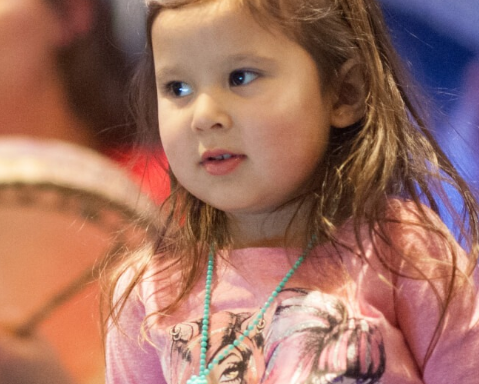
- Details
- By Kaili Berg
In a landmark decision, California Governor Gavin Newsom (D) has signed Assembly Bill 81 (AB 81) into law on California Native American Day, enhancing protections for Native American children, families, and tribal rights in child welfare cases.
Authored by Assemblymember James C. Ramos (D-San Bernardino), the bill builds upon the federal Indian Child Welfare Act (ICWA) of 1978, providing additional safeguards for California's Native American children and their families.
AB 81 strengthens California's state laws by formally renaming sections of the Family Code, Probate Code, and Welfare and Institutions Code as the California Indian Child Welfare Act.
This bill mandates county welfare departments and probation departments to determine if a child is, or may be, an Indian child at the earliest stages of their involvement in any child welfare case. Courts presiding over such cases are now required to inquire whether the child is of Native American heritage during the first hearing, ensuring that tribal rights are respected from the outset.
“We, as Native Americans, are all too familiar with the historical trauma of government-enforced removal of Indian children from their families," Ramos said in a press release. "AB 81 is about fortifying the protections of the federal ICWA to prevent Native children from being taken away from their families and communities, ensuring they can stay connected to their relatives and culture.”
The passage of AB 81 follows the U.S. Supreme Court’s ruling in 2023, which upheld the original ICWA, reaffirming the importance of protecting the rights of Native American families and communities in child welfare cases.
Ramos emphasized that this bill adds another layer of protection to prevent future challenges to ICWA and to rectify the injustices that Native communities have faced historically.
Ramos, the first California Native American elected to the state Legislature, drew a direct connection between the need for such legislation and the legacy of the U.S. boarding school era, where Native children were forcibly removed from their homes to erase their cultural identity.
A recent Department of Interior report highlighted the tragic consequences of this policy, revealing nearly 1,000 deaths of Native children at these schools, alongside widespread reports of physical and psychological abuse.
Under AB 81, California Indian children and their families will benefit from enhanced protections, including:
- Clear notifications to parents, direct lineal ancestors, and custodians about proceedings involving the potential removal or placement of a child.
- The right to court-appointed counsel in any removal, placement, or termination case.
- A mandate for county welfare agencies to actively work toward preventing family separation and to prioritize reunification when a child is removed.
The legislation also requires consultation with federally and non-federally recognized tribes about the placement of Native children, ensuring that tribal voices are integral in these decisions.
The Morongo Band of Mission Indians and the California Tribal Families Coalition played a pivotal role in supporting AB 81, with Tribal Chairman Charles Martin expressing gratitude for the continued efforts to protect Native children and families.
"AB 81 advances the essential rights of tribal children and tribes in child welfare proceedings," Martin said, adding that Morongo has long been an advocate at both the state and federal levels for such protections.” California Tribal Families Coalition’s Co-Executive Director, Blair Kreuzer, said in a press release. “This legislation is a crucial step forward in ensuring Native children remain with their families and connected to their culture.”
AB 81 is supported by a broad coalition of tribes and organizations, including the Alliance for Children’s Rights, the ACLU, and several California tribal governments. Among the many provisions, the bill requires that county welfare agencies implement active efforts to prevent family separation and establish programs to facilitate tribal participation in child custody proceedings.
With AB 81 now law, California reaffirms its commitment to protecting Native American children, supporting tribal sovereignty, and healing the wounds of the past by preserving the rights of Native families for generations to come.
More Stories Like This
50 Years of Self-Determination: How a Landmark Act Empowered Tribal Sovereignty and Transformed Federal-Tribal RelationsCherokee Nation Launches Digital Dictionary to Support Language Revitalization
Prairie Band Potawatomi Nation Chairman Addresses Homeland Security Contract
Lancaster County to Recognize Conestoga-Susquehannock Tribe on Massacre Anniversary
How the Gaming Economy Helps Tribes Navigate Shifting Policies
Help us defend tribal sovereignty.
At Native News Online, our mission is rooted in telling the stories that strengthen sovereignty and uplift Indigenous voices — not just at year’s end, but every single day.
Because of your generosity last year, we were able to keep our reporters on the ground in tribal communities, at national gatherings and in the halls of Congress — covering the issues that matter most to Indian Country: sovereignty, culture, education, health and economic opportunity.
That support sustained us through a tough year in 2025. Now, as we look to the year ahead, we need your help right now to ensure warrior journalism remains strong — reporting that defends tribal sovereignty, amplifies Native truth, and holds power accountable.
 The stakes couldn't be higher. Your support keeps Native voices heard, Native stories told and Native sovereignty defended.
The stakes couldn't be higher. Your support keeps Native voices heard, Native stories told and Native sovereignty defended.
Stand with Warrior Journalism today.
Levi Rickert (Potawatomi), Editor & Publisher


